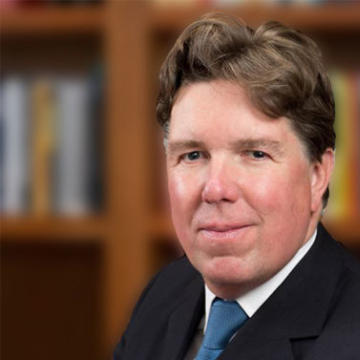The University of Arizona, Center for the Philosophy of Freedom, welcomed Sir Paul Tucker and a distinguished panel of scholars to discuss his new book that addresses today’s unprecedented times and the strategies leaders should take to manage them. The panel discussion was hosted at the University of Arizona on December 1, 2022.
Tucker is one of the most notable experts on economic policy, blending lived experience and scholarly research. As Deputy Governor at the Bank of England from 2009 to October 2013, he was at the center of efforts to contain the financial crisis. He is the author of Unelected Power: The Quest for Legitimacy in Central Banking and the Regulatory State (2018). Tucker’s new book, Global Discord: Values and Power in a Fractured World Order, offers a historical perspective and a new prescription for the future.
With an emphasis on Tucker’s new book, panelists addressed a fundamental question, “Can the international economic and legal system survive today’s fractured geopolitics?” Combining history, economics, and political and legal philosophy, Tucker’s approach embraced ideas from David Hume, Bernard Williams, and modern mechanism-design economists. He noted this approach reflects political realism and emphasizes power and interests without sidelining morality.
Panelists
- Allen E. Buchanan moderated the panel. He is currently a Research Professor at the University of Arizona Center for the Philosophy of Freedom and was the James B. Duke Distinguished Professor of Philosophy at Duke University. His primary research is in political philosophy, philosophy of international law, bioethics, social and moral epistemology. His career has combined scholarly work with active engagement with policymakers at the highest levels, nationally and internationally. For example, he served as a staff member or consultant for all the U.S. national Bioethics Commissions since 1981 and has consulted with the High Commissioner on National Minorities of the Council of Europe, the Canadian Government, the Transitional Government of Ethiopia, the Government of Catalonia, and the U.S. State Department on issues of self-determination and secession.
- Thomas Christiano is the head of the University of Arizona Philosophy Department and the Freedom Center’s Research Seminar director. His teaching and research focus on moral and political philosophy, emphasizing democratic theory, distributive justice, and global justice. He is the editor of the journal Politics, Philosophy & Economics, which brings moral, economic, and political theory to bear on the analysis, justification, and criticism of political and economic institutions and public policies.
- Saura Masconale introduced the panel and is the Associate Director at the University of Arizona Center for the Philosophy of Freedom and an Assistant Professor at the Department of Political Economy and Moral Science. Her research encompasses the broad domain of “law and political economy,” which studies how the intersection of legal entitlements, politics, and economic forces affect society, both as a positive and normative matter. At the Freedom Center, she is also in charge of the Master of Legal Studies, Law & Economics concentration, which the Center cosponsors with the James E. Rogers College of Law. Masconale was also competitively selected for the University of Arizona Academic Leadership Institute in 2021-22.
- Sir Paul Tucker is a Research Fellow of the Mossavar-Rahmani Center for Business and Government at the Harvard Kennedy School, writing where political economy meets political theory. His other current activities include being a senior fellow at Harvard’s Center for European Studies; President of the UK’s National Institute for Economic and Social Research; and a Governor of the Ditchley Foundation. Tucker spent more than three decades in central banking, occupying senior positions in the international policymaking world, and was knighted by Britain in 2014.


